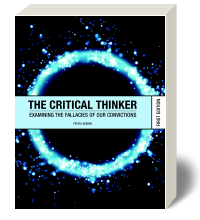Step 1. Adopt the LAB BOOK format of a BVT Textbook (see available titles).
Most of our nationally marketed titles are on our LAB BOOK platform, and they are all priced at less than $30 to the student. LAB BOOK includes an advanced eBook, student resources, and an online classroom/lab. If students want a print copy as well, they can buy one from within LAB BOOK at a discounted price ($25 to $35 depending on page count, with free shipping).
Explore our titles in the following categories:
If you are using one of our Mathematics textbooks (which are not yet on our LAB BOOK platform), you may still be able to use our BVTLab platform for your online classroom needs. Ask us.
Step 2. Put an Instant Access link in your LMS to get your students started on day-one.
Instant Access is BVT's simplified Inclusive Access setup. Simply create a link (ask us for one) in your LMS, and all of your students will have free access to the LAB BOOK for the first 2 weeks of class. Plus, during those 2 weeks we offer them a 10%-off coupon. You can see the details of Instant Access here.
If financial aid recipients need to purchase through the bookstore, we make access cards available, and we can extend their free access by a week or two if needed.
If your campus already has Inclusive Access up and running, we can use that too. See the pros and cons here.
Step 3. Take advantage of the built-in LAB BOOK homework assignments.
LAB BOOK comes with a homework generator—you simply choose how many questions you want per chapter, and viola. If you're so inclined, you can tweak the assignments taking advantage of a generous bank of additional questions. (You can also set up quizzes and exams from separate banks of questions if you want.)
The homework questions are conveniently sprinkled throughout the eBook chapters, so your students can "read a little, do a little". Plus, the multiple-choice homework questions are automatically graded for you.
Putting the homework in the LAB BOOK is a great way to ensure that 1) all of your students buy the book, and 2) that they actually open it every week.
See “How to Manage Assessments in BVT Lab Book” for a step-by-step video instruction.
Step 4. Pick and choose from the classroom tools you want to use.
LAB BOOK comes with some handy classroom tools that can really help with distance education. These include a built-in roster and gradebook, student platform usage metrics, and a convenient place to organize and play your lecture videos for each chapter. Plus, there are communication tools such a notification system, and the option for sharing your highlights and margin notes within the book.
See the “Advanced Classroom Features” of Lab Book for a video overview.
There is also a group video chat room automatically set up for each of your sections, where you can do lectures, small-group tutorials, and even host your office hours. If you don't have a webcam on your computer, you can access it from your smartphone (app download required). And you can screen-share too. It's open 24/7 with a specially-coded one-click link from the lab, so your students can use it as a place to hang out and study together. Try it here.
Step 5. Set up quizzes and exams if you want (with our help), or use what you already have in your LMS.
It is completely up to you how you do your quizzes and exams. We have extensive question banks that you can upload into your LMS, or we can help you set them up right within LAB BOOK. We offer true/false, multiple choice, short-answer and essay questions, with the first two types being automatically graded.
Step 6. Transfer your grades at the end of semester, or have us hook up a full LMS integration.
At the end of the semester (or any time you want), you can download the gradebook from LAB BOOK and upload it into your LMS. Or, if you prefer, we can potentially do a full LMS integration so that the grades transfer automatically; however this may require some permissions and assistance from your campus. Please don't hesitate to ask us, and we will look into it for you.
Step 7. Call us during office hours and speak to a live person whenever you want.
OK, so this not so much a step as an offer. We are not like the "big" publishers. At BVT, you can actually talk to a live person. Our office hours are:
- Monday: 7:00 AM to 5:00 PM (Pacific)
- Tuesday: 7:00 AM to 5:00 PM
- Wednesday: 7:00 AM to 5:00 PM
- Thursday: 7:00 AM to 5:00 PM
- Friday: 7:00 AM to 11:00 AM
phone
If you call outside of our office hours and leave a message, we will usually call you back the next business day. If you are working from home, make sure you leave a home or cellphone number—and let us know if you want us to delete it from our records afterwards. Your privacy is important to us.
